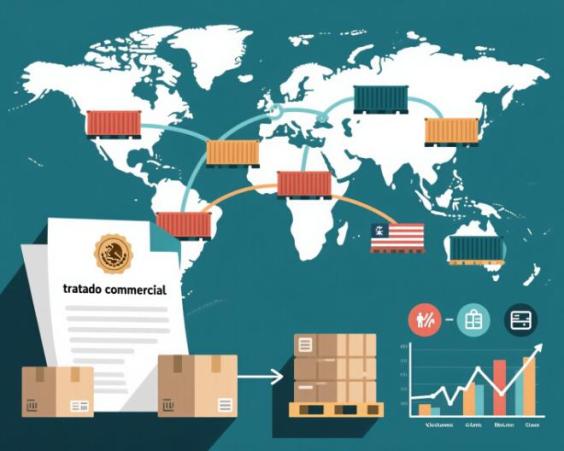How Trade Agreements Affect the Valuation of Imported Inventories
The valuation of imported inventories is a crucial process for companies that participate in international trade. However, this process can be influenced by a variety of factors, including trade agreements. In this article, we will explore how trade agreements can affect the valuation of imported inventories and what implications they have for companies operating in the global market.

What are trade agreements?
Trade agreements are agreements between two or more countries that establish the rules and conditions for international trade. These agreements can cover a wide range of topics, including the reduction of tariffs, the elimination of non-tariff barriers, and the protection of intellectual property rights. Trade agreements can be bilateral (between two countries) or multilateral (between several countries).
Types of trade agreements
There are several types of trade agreements, including:
- Free trade agreements (FTAs): These agreements eliminate or reduce tariffs and other trade barriers between the participating countries.
- Economic partnership agreements (EPAs): These agreements establish a closer economic relationship between the participating countries, including the creation of a free trade area.
- Economic cooperation agreements (ECAs): These agreements establish economic cooperation between the participating countries, including the promotion of trade and investment.
How trade agreements affect the valuation of imported inventories
Trade agreements can affect the valuation of imported inventories in several ways:
Reduction of tariffs
Trade agreements can reduce or eliminate tariffs, which can affect the valuation of imported inventories. If tariffs are reduced, the value of imported inventories will also decrease, which can affect the profitability of companies.
Change in rules of origin
Trade agreements can change the rules of origin, which can affect the valuation of imported inventories. The rules of origin determine the country of origin of a product and can affect the application of tariffs and other taxes.
Protection of intellectual property rights
Trade agreements can protect intellectual property rights, which can affect the valuation of imported inventories. If intellectual property rights are protected, companies may have to pay royalties or licenses to use technologies or trademarks.
Implications for companies
Trade agreements can have significant implications for companies operating in the global market. Some of the most important implications include:
Increased competition
Trade agreements can increase competition in the market, which can affect the profitability of companies.
Change in business strategies
Trade agreements can require companies to change their business strategies, which can affect the valuation of imported inventories.
Increased complexity
Trade agreements can increase the complexity of business operations, which can affect companies' ability to comply with regulations and standards.
Conclusion
Trade agreements can affect the valuation of imported inventories in several ways, including the reduction of tariffs, the change in rules of origin, and the protection of intellectual property rights. Companies operating in the global market must be aware of trade agreements and their implications in order to make informed decisions and maintain their competitiveness in the market.





